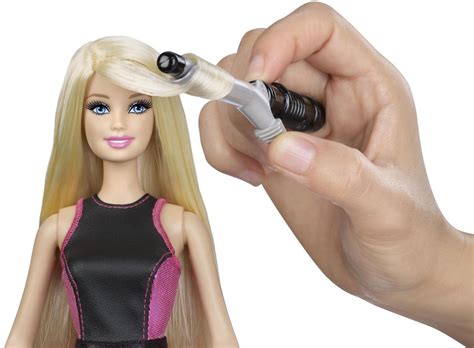Table of Contents
- Curly & Frizz-Prone: A Guide to Embrace Your Italian Tresses
- Section 1: Understanding Your Curls
- Understanding Curl Types and Patterns
- Determining Your Hair Porosity
- Understanding Curl Protein Levels
- Section 2: Essential Hair Care for Italian Curls
- Choosing the Right Shampoo and Conditioner
- Deep Conditioning and Hair Masks
- The Importance of Leave-In Conditioners
- Taming Frizz with Anti-Frizz Products
- Regular Trims to Promote Healthy Growth
- Section 3: Styling Techniques for Italian Curls
- The Benefits of Finger Coiling
- The Art of Scrunching and Diffusing
- Styling with Curl Creams and Gels
- Embracing the Power of Plopping
- Creating Volume with Root Clipping
- Section 4: Product Recommendations for Italian Curls
- Shampoos and Conditioners
- Leave-In Conditioners and Curl Creams
- Anti-Frizz Products
- Diffusers
- Section 5: Common Mistakes to Avoid for Italian Curls
- Overwashing and Overconditioning
- Skipping Leave-In Conditioners
- Using Harsh Shampoos and Conditioners
- Overbrushing and Excessive Styling
- Section 6: Conclusion
- Why Italian Curly Hair Matters
Curly & Frizz-Prone: A Guide to Embrace Your Italian Tresses
Italian women are renowned for their beautiful, lustrous curls, but managing these curls can be a challenge, especially given the high humidity levels and pollution in many parts of Italy. This guide provides comprehensive tips and tricks to help Italian women embrace their natural curls, reducing frizz and highlighting their unique beauty.

Section 1: Understanding Your Curls
Understanding Curl Types and Patterns
The Andre Walker Hair Typing System categorizes curls into four types, with each type further divided into subcategories based on the curl’s circumference:
- Type 2: Wavy
- 2A: Loose, beachy waves
- 2B: Defined S-shaped waves
-
2C: Tight, ringlet-like waves
-
Type 3: Curly
- 3A: Loose, bouncy curls
- 3B: Defined, springy curls
-
3C: Tight, corkscrew curls
-
Type 4: Coily
- 4A: Soft, S-shaped coils
- 4B: Zigzag coils with sharp angles
- 4C: Tight, densely packed coils
Most Italian women have Type 2 or 3 curls, although some may have Type 4a coils.
Determining Your Hair Porosity
Hair porosity refers to its ability to absorb and retain moisture. There are three main porosity levels:
- Low Porosity: Hair has tightly closed cuticles, making it difficult for moisture to penetrate.
- Medium Porosity: Hair has moderately open cuticles, allowing for easier moisture absorption and retention.
- High Porosity: Hair has highly open cuticles, allowing for rapid water absorption but also quick moisture loss.
Italian curls are typically medium to low porosity, requiring emollients and humectants in their hair care products to help seal in moisture.
Understanding Curl Protein Levels
Curl protein levels refer to the amount of protein in the hair shaft. Balanced protein levels are crucial for healthy curls.
- Low Protein: Hair can become weak, stretchy, and prone to breakage.
- Medium Protein: Hair is healthy, strong, and elastic.
- High Protein: Hair can become dry, brittle, and prone to frizz.
Italian curls often have low protein levels due to the humid climate, so protein-rich treatments are beneficial.
Section 2: Essential Hair Care for Italian Curls
Choosing the Right Shampoo and Conditioner
- Use shampoos and conditioners specifically designed for curly hair, which typically contain moisturizing and detangling ingredients.
- Avoid harsh sulfates and parabens that can strip curls of their natural oils.
- Choose products with humectants, such as aloe vera or glycerin, to retain moisture.
- Co-wash (conditioner-only washing) can be a gentle alternative to shampooing for low-porosity curls.
Deep Conditioning and Hair Masks
- Deep condition once or twice a week with a rich mask containing nourishing ingredients like shea butter or coconut oil.
- Leave masks in for at least 30 minutes to allow for deep penetration.
- Use a plastic cap or warm towel to enhance the treatment’s effectiveness.
The Importance of Leave-In Conditioners
- Leave-in conditioners provide continuous hydration and detangling throughout the day.
- Choose products with humectants, emollients, and anti-frizz agents.
- Apply leave-in conditioners to damp hair, focusing on the mid-lengths and ends.
Taming Frizz with Anti-Frizz Products
- Anti-frizz products contain ingredients that coat the hair shaft, reducing surface friction and smoothing frizz.
- Look for products with silicones, oils, or humidity-resistant polymers.
- Apply anti-frizz products to damp or dry hair, avoiding the roots to prevent greasiness.
Regular Trims to Promote Healthy Growth
- Regular trims remove split ends and prevent breakage, promoting healthy curl growth.
- Get trims every 6-8 weeks to maintain strong and defined curls.
Section 3: Styling Techniques for Italian Curls
The Benefits of Finger Coiling
- Finger coiling involves wrapping small sections of damp hair around your finger to create defined curls.
- Start coiling from the roots and work your way down to the ends.
- Use a curl cream or gel for hold and definition.
The Art of Scrunching and Diffusing
- Scrunching enhances curl definition and volume.
- Apply a curl cream or gel and scrunch upwards with your hands.
- Use a diffuser on a low heat setting to dry your curls gently without causing frizz.
Styling with Curl Creams and Gels
- Curl creams provide hold, definition, and moisture without weighing curls down.
- Apply cream to damp hair and scrunch in for definition.
- Gels offer stronger hold and help control frizz.
- Use gels on wet or damp hair and scrunch in for a sleek look.
Embracing the Power of Plopping
- Plopping is a technique that helps enhance curl definition by removing excess water and creating a curl cast.
- Wrap your wet hair in a T-shirt or microfiber towel and leave it for 15-30 minutes.
- Gently scrunch the curls and diffuse or air-dry.
Creating Volume with Root Clipping
- Root clipping involves using clips to lift the roots of your hair, creating volume.
- Section off the top layer of hair and clip small sections at the roots.
- Remove the clips after your hair is dry for added volume.
Section 4: Product Recommendations for Italian Curls
Shampoos and Conditioners
- SheaMoisture Coconut & Hibiscus Curl & Shine Shampoo and Conditioner
- Cantu Shea Butter for Natural Hair Moisturizing Cream Shampoo and Conditioner
- Ouidad Curl Quencher Moisturizing Shampoo and Conditioner
Leave-In Conditioners and Curl Creams
- Kinky-Curly Knot Today Natural Leave-In Detangler
- Giovanni L.A. Natural Styling Gel
- DevaCurl B’Leave-In Miracle Curl Plumper
Anti-Frizz Products
- Moroccanoil Frizz Control Smoothing Cream
- Aveda Be Curly Curl
